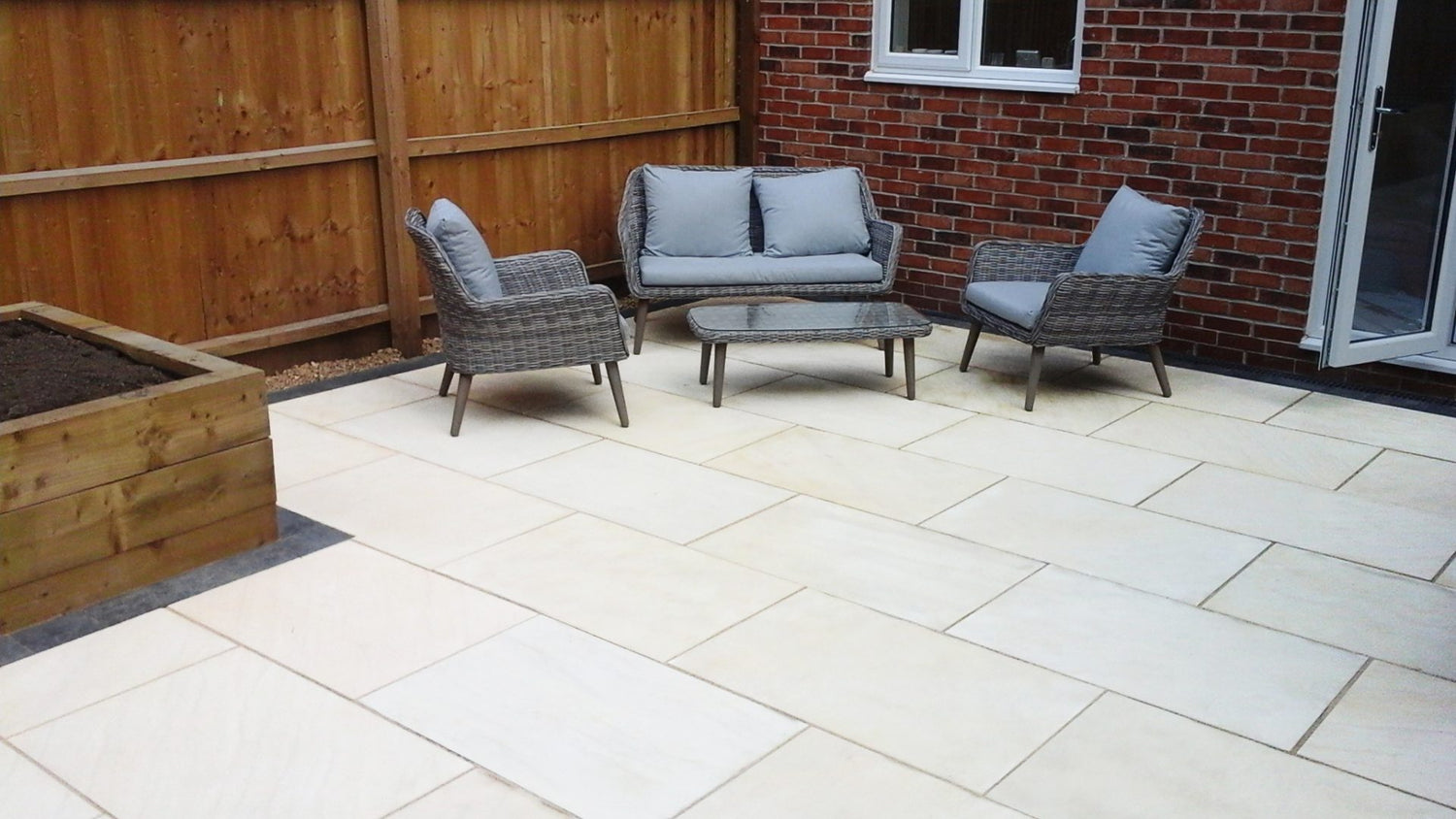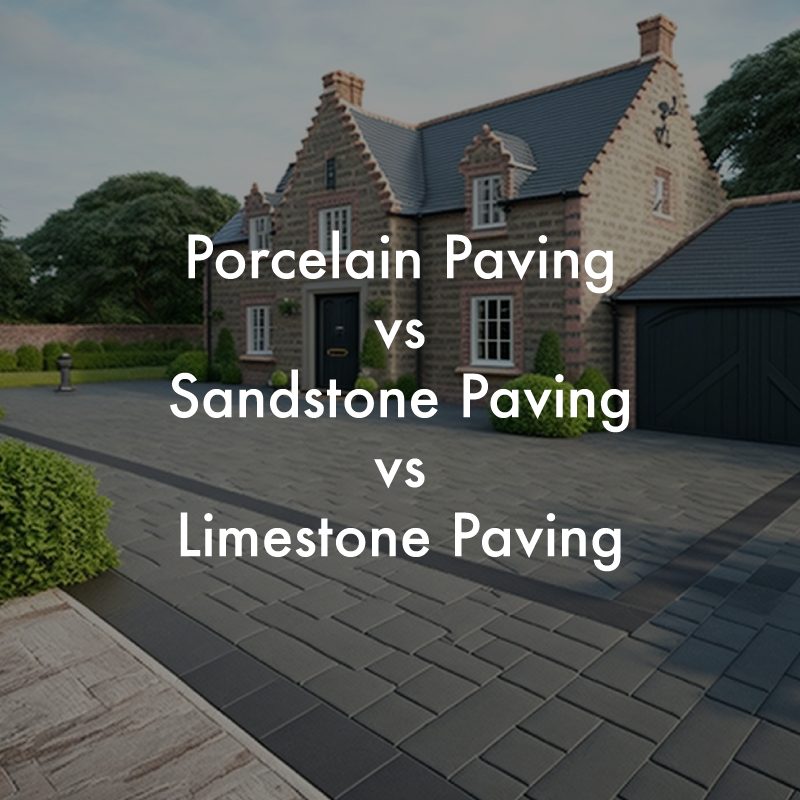
Sandstone v Limestone v Porcelain: The Pros and Cons of Different Garden Paving Materials
Share
Transforming your outdoor space involves choosing the right paving material, and porcelain and sandstone are two of the most popular options. Both have their unique strengths and drawbacks, making the decision a bit challenging. Let’s break down the key factors to help you make an informed choice.
Cost
When it comes to cost, sandstone generally wins. It’s a more budget-friendly option, offering a natural, rustic look at a lower price point. Porcelain, on the other hand, tends to be more expensive due to its manufacturing process and durability. However, porcelain's long-term savings on maintenance can offset the initial higher investment.
Durability
In terms of durability, porcelain is the clear winner. It’s highly resistant to scratches, stains, and weather conditions, making it ideal for high-traffic areas and harsh climates. Sandstone is durable as well, but it’s more prone to weathering, erosion, and cracking, particularly if not properly sealed. Limestone falls somewhere between the two, offering good durability but being softer and more prone to scratches than porcelain.
Maintenance
Porcelain requires very little maintenance, thanks to its resistance to moss, mold, and stains. Occasional cleaning is all that’s needed to keep it looking new. Sandstone demands more attention; it often needs regular sealing to protect against stains and moisture, and it’s more likely to develop algae or moss in damp conditions. Limestone also requires regular sealing and can be more challenging to clean due to its susceptibility to stains.
Aesthetic Appeal
For aesthetic appeal, the choice largely depends on your style preferences. Sandstone offers a natural, earthy charm with its varied textures and tones, making each slab unique. It’s perfect for creating a rustic or traditional garden look. Porcelain, however, provides a sleek, modern appearance with a wide variety of colors and finishes. It can even mimic natural stone or wood, making it highly versatile in design. Limestone offers a middle ground with a smooth texture and subtle color variations, providing a refined, elegant look that suits various styles.
Slip Resistance
Porcelain paving is often designed with slip resistance in mind, especially in textured finishes, making it a safe choice for wet areas like pool surrounds. Sandstone naturally has good slip resistance, particularly with a riven or textured finish, though smoother sandstone can become slippery when wet. Limestone also offers decent slip resistance, but like sandstone, it depends on the finish.
Environmental Impact
If environmental impact is a concern, sandstone may be the better choice, particularly when responsibly sourced. It’s a natural material with a lower initial environmental footprint compared to porcelain, which is energy-intensive to produce. However, porcelain’s longevity and minimal maintenance reduce its overall impact over time.
Which is Better?
For most homeowners, porcelain is the superior choice if you’re looking for a long-lasting, low-maintenance option that can withstand heavy use and extreme weather. It’s more expensive upfront but pays off in the long run with its durability and minimal upkeep.
Sandstone, however, is a fantastic option for those on a budget or who prefer a more natural, rustic aesthetic. It offers good value and a unique, earthy look, though it requires more maintenance and care.
Limestone provides a nice balance between the two, offering a smooth, elegant finish with moderate durability and maintenance needs, making it suitable for a variety of garden styles.
Example Pricing Table: Porcelain vs. Sandstone vs. Limestone
To give you a better idea of the cost comparison, here’s an example pricing table for a typical 20 square meter outdoor space:
| Material | Approximate Cost per Square Meter | Total Cost for 20 Square Meters |
|---|---|---|
| Porcelain Paving Slabs | £25 - £45 | £500 - £900 |
| Sandstone Paving Slabs | £30 - £50 | £600 - £1000 |
| Limestone Paving Slabs | £30 - £50 | £600 - £1000 |
Do porcelain paving slabs crack easily?
Porcelain slabs are highly durable and resistant to cracking, but they are not completely immune. Proper installation and maintenance minimize the risk, ensuring longevity even in high-traffic areas.
Is porcelain slippery when wet?
Porcelain paving is generally not slippery when wet, especially when textured surfaces are chosen. However, smooth finishes might be more slippery, so selecting the right finish for wet areas like poolsides is crucial.
What are the disadvantages of porcelain paving?
Despite its durability, porcelain can be prone to chipping and cracking under extreme impact. It’s also more expensive than some other materials, and improper installation can lead to issues like lippage or uneven surfaces.
Can you jet wash porcelain tiles?
Yes, porcelain tiles are durable enough to withstand jet washing. This makes them easy to clean and maintain, keeping your outdoor space looking pristine with minimal effort.
Which is better: sandstone or porcelain paving?
Porcelain paving is more durable and low-maintenance, making it ideal for high-traffic areas. Sandstone offers a natural, rustic charm and is more cost-effective but may require more maintenance over time. Your choice depends on your priorities: durability vs. aesthetic appeal.
Does sandstone paving get slippery when wet?
Yes, sandstone can become slippery when wet, especially if it has a smooth finish. Opting for a textured surface or applying a non-slip sealant can reduce this risk, making it safer for outdoor areas.
What is the best stone for patios in the UK?
Sandstone and limestone are popular choices in the UK due to their durability and aesthetic appeal. They offer excellent value for money and are available in various colors and finishes, making them versatile for different design preferences.
Does porcelain paving get hot in the sun?
Porcelain paving can get warm in direct sunlight, but it typically doesn't retain heat as much as darker natural stones. It remains comfortable to walk on barefoot, making it a great choice for outdoor areas.
Is natural stone or porcelain better for a patio?
Natural stone offers a unique, rustic appeal with each piece having its own character, while porcelain provides a sleek, modern look with uniformity and lower maintenance. The best choice depends on your design preference and how much upkeep you're willing to commit to.
Related Posts
-

UK Garden Statistics and Trends 2024
UK Garden Statistics and Trends 2024 General UK Garden Statistics The vast majority of UK households have access to ...
-

Can I lay Paving on Soil or Mud?
Technically, yes – you can lay paving stones or slabs directly onto exposed topsoil however, laying a sub-base will e...
-

How Much Does a New Patio Cost?
A new patio in the UK typically costs between £80-£150 per square meter. For a 40-50 sqm patio, expect to pay £2,000-...
-

What Different Sizes Do Paving Slabs Come In?
When planning a patio or outdoor paving project, one of the key decisions is choosing the right size paving slabs. ...
-
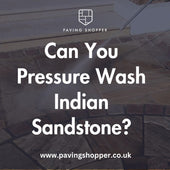
Can You Pressure Wash Indian Sandstone?
Indian sandstone is a popular choice for outdoor paving due to its durability and attractive appearance. However, li...
-
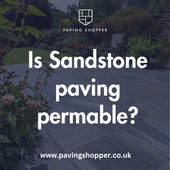
Is Sandstone Paving Permeable? Is it porous?
Sandstone's porous nature enables it to absorb rainfall, qualifying it as a permeable paving variety. However, seali...
-
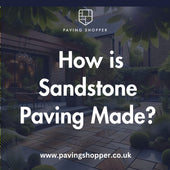
Where Does Natural Sandstone Paving Come From?
Sandstone begins deep underground, formed over eras as minerals and sediments fused under pressure. Powerful forces ...
-

5 Paving Ideas for Small Gardens: Maximise Your Outdoor Space
Front of House When considering paving ideas for the front of your house, it's crucial to select ones that complem...
-

9 Paving Ideas for Front of House: Enhancing Curb Appeal with Style
The facade of a house plays a pivotal role in defining its character and curb appeal, and the choice of paving can s...
-

9 Summer Garden Paving Ideas UK
Summer gardens offer a vibrant canvas for homeowners to express their style while enhancing outdoor living spaces. G...
-

8 Garden Paving Ideas for 2024
It's time to refresh your garden's look for 2024 and an easy way to do that is with some new paving. With so many opt...
-
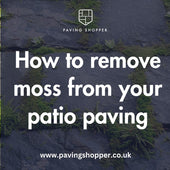
How to remove moss from patio paving
Moss growth is a common issue for patio paving, especially in damp, shaded areas. While moss may seem harmless, it ca...
-
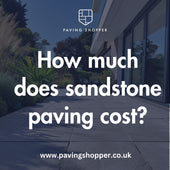
How much does sandstone paving cost?
When choosing new garden pavers, sandstone offers homeowners an enticing middle-ground - more durable than basic conc...
-
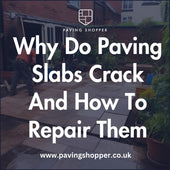
Why Do Paving Slabs Crack And How To Repair Them
Seeing cracks appear on your patio or driveway can be disheartening after investing time and money into installing be...
-

How to lay paving in winter (Tips & Tricks)
How Cold Temperatures Impact Paving Projects The primary concern when working in cold weather is ensuring proper curi...
-

Sub Bases For Patios
Building the Perfect Patio Base: A Comprehensive Guide When planning an outdoor living space, understanding proper ba...
-
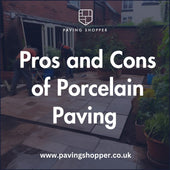
Pros and Cons of Porcelain Paving
Are you considering adding porcelain paving to your outdoor space? It's important to weigh the pros and cons before ...
-

Understanding Paving Slip Ratings: A Comprehensive Guide
A paving slip rating, also known as a slip resistance or anti-slip rating, is a measure of how slippery a surface...
-

Stunning Garden Water Feature Ideas - Enhance Your Outdoor Space
Garden water features are decorative elements that incorporate water into a garden, adding beauty and a sense of ...
-
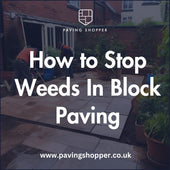
How to Stop Weeds in Block Paving: Expert Tips andTricks
Weeds growing between the blocks of your paving can be an unsightly and frustrating problem. Not only do they make y...
-
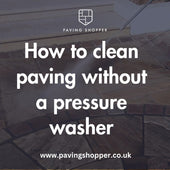
How to clean paving without a pressure washer
A patio cleaner is a cleaning solution designed specifically for removing dirt, grime, and stains from outdoor patio...
-

How to Grout Paving Slabs – Expert Tips and Techniques
Pointing paving slabs is an important step in the process of installing them. Grout is a mixture of cement, water...
-
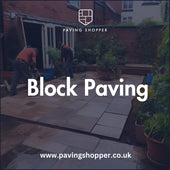
Block Paving Guide | What Does it Cost? | How Much Per m2?
Block paving is a versatile and durable option for creating driveways, patios, and paths. This method involves using...
-
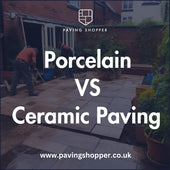
Porcelain VS Ceramic Paving
Porcelain paving is non-porous and more durable than ceramic paving, which is more porous and prone to stains and wea...
-
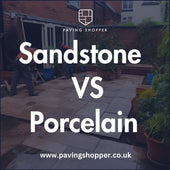
Sandstone V Porcelain Paving - (Style Comparison and Distinctions)
When choosing materials for your patio or driveway, two of the most popular options are sandstone paving slabs and p...
-

Understanding Gradients and Falls for Paving and Drainage (2024)
When it comes to paving and drainage projects, understanding the correct gradients and falls is essential for ensuri...
-
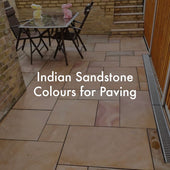
Indian Sandstone Paving Colours for A Patio - A Comprehensive Guide
Indian sandstone is one of the most popular paving materials, celebrated for its natural beauty and the variety of co...
-
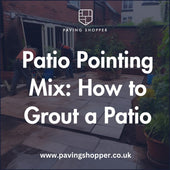
Jointing and Pointing For Paving (Sand & Cement Mix)
Patio pointing is important for both looks and durability. It protects the layers under your paving, stops weeds, and...
-

How to Lay Paving on Sand and Cement: Expert Advice and Tips
Paving on Sand and Cement: A Comprehensive Guide When it comes to enhancing your outdoor space, paving is a popular ...
-

Pros and Cons of Sandstone Paving
Pros & Cons of Indian Sandstone Paving Indian sandstone paving is a natural and durable option that adds both bea...
-
Does Patio Paving Need Edging? A Comprehensive Guide
In this article, we'll explore the importance of patio edging, the different types of edging materials available, and...
-
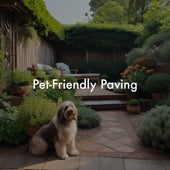
Pet Friendly Paving - What is the best paving for a dog-friendly garden?
Creating a dog-friendly garden requires choosing the right paving materials to ensure your furry friends can enjoy t...
-

Patio Paving Laying Patterns Guide
Paving patterns can transform an ordinary outdoor space into a stunning and eye-catching area that complements your ...
-
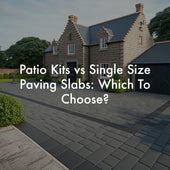
Patio Kits vs Single Size Paving Slabs: Which To Choose?
When designing a patio or outdoor space, one crucial decision is whether to use a patio kit (also known as patio pack...
-

Are paving slabs suitable for driveways?
This is a question many homeowners ask when it comes to choosing the right type of driveway surface for their home. T...
-
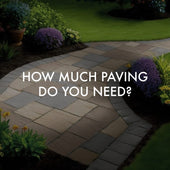
How much paving do you need to cover your outdoor space?
Planning an outdoor paving project is exciting, but it’s crucial to accurately estimate the amount of paving needed b...
-
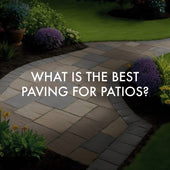
What is the Best Paving for Patios?
When it comes to choosing the best paving for patios, there are a variety of factors to consider, such as durability,...
-
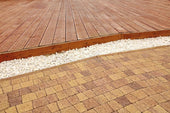
Are Paving Slabs Cheaper Than Decking?
Transforming your backyard into the ultimate outdoor oasis can be challenging when choosing between paving slabs or d...
-
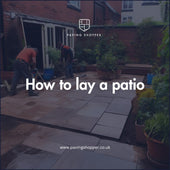
How to lay a patio - An expert guide to laying paving slabs and patterns
There are a few things to consider before laying a patio, such as the type of paving stones and the laying pattern. Y...
-
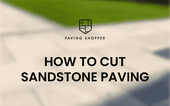
How to cut Sandstone Paving?
When it comes to prepping your garden for a new patio, you may consider different designs that require your paving to...











































